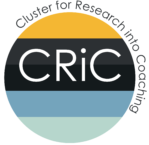Overview
The Future Leaders of Sport Coaching in Higher Education Programme is a 12-18 month leadership development initiative designed for early to mid-career academics who aspire to take on significant leadership roles within higher education institutions. The programme aims to cultivate a new generation of academic leaders in sport coaching who are strategic, inclusive, and equipped to shape the future of teaching, research and governance.

Programme Objectives
- To develop participants' leadership identity, confidence and capability
- To build strategic awareness of the higher education landscape
- To provide insight into key academic leadership roles (e.g., journal editor, Dean, research leader)
- To foster inclusive leadership practices and collaborative cultures
- To support participants in designing and executing a leadership project with real institutional impact
- To build a sustainable network of future academic leaders within and across sport coaching and other disciplines
Target Participants
Early to mid-career academics (typically Lecturers, Senior Lecturers, or early Associate Professors) with:
- Demonstrated interest or potential in leadership
- Desire to shape institutional and disciplinary futures
- Commitment to inclusive and ethical leadership
Interested in the programme?
We are now accepting Expressions of Interest (EOI) for the Future Leaders Programme via the form linked below.
